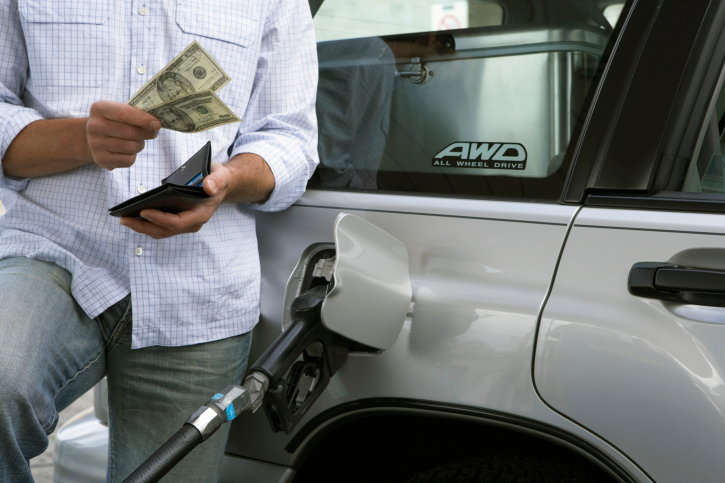When President Barack Obama first took office in January 2009, thenational average gas price was $1.95, but over most of Obama’s presidency, prices have risen continuously, averaging well over $3 per gallon through much of 2014.
Beginning in the fall of 2014, however, something truly amazing for American consumers occurred: Gas prices suddenly started to fall, and at a rapid pace. According to AAA’s Fuel Gage Report, gas prices in September 2014 averaged $3.39 per gallon, but by January 2015, gas prices had plummeted to below $2.20, with many states like Kansas, Oklahoma, and Texas seeing gas prices fall below $2 for the first time in nearly five years.
Gasoline at the pump isn’t the only energy source with significant price declines. Natural gas prices have also fallen at notable rates, and Trevor Sikorski, head of natural gas for Energy Aspects, told Bloomberg natural gas prices could fall by as much as 30 percent in 2015.
Even though national gas prices have only been under $3 per gallon for less than five months, governments across the country have already started to propose major energy tax increases in an effort to find an easy way to alleviate budget shortfalls.
On Wednesday, Pennsylvania Gov. Tom Wolf (D) announced his proposal to impose a 5 percent severance tax plus a 4.7 cents per thousand feet of volume on natural gas extraction, a plan he says could raise $1 billion in fiscal year 2017.
South Carolina Gov. Nikki Haley (R) announced in her annual State of the State address she would be willing to support increasing her state’s gas tax by 10 cents per gallon if lawmakers in the legislature agree to lower income taxes.
Sen. John Thune (R-SD), the Republican leader of the Senate Transportation Committee, told Fox News Sunday that an increase of the federal gas tax was being considered in Congress. “I don’t think we take anything off the table at this point,” Thune said.
Politicians see gas taxes as an easy way to fill government coffers, and lower prices have made what would have been an extremely unpopular tax six months ago a seemingly reasonable proposal today.
However, tax increases based on sudden price drops are foolish and could lead to unnecessary hardship for consumers in the future if prices suddenly increase again, a possibility that’s more likely than many lawmakers are willing to admit.
Perhaps the greatest reason for falling energy prices is that many oil and natural gas producers around the world like Saudi Arabia and other members of the Organization of the Petroleum Exporting Countries (OPEC) have uncharacteristically refused to cut production in circumstances that have traditionally led to production cuts in the past.
Continued high rates of production from foreign producers, combined with increased production over the past few years from U.S. oil and natural gas companies, is helping consumers today, but these actions will not continue for long.
U.S. shale producers have already started to cut production, and as soon as OPEC feels more comfortable with the global energy market, it will begin cutting production again as well. Prices will go back up again, and consumers will be stuck with similar energy prices from one year ago plus a new round of energy taxes.
Some politicians say energy taxes like those proposed by Wolf in Pennsylvania are aimed at energy producers, so consumers will likely avoid having to pay any additional costs. This, however, is a complete fiction.
Oil and natural gas companies have been hit hardest by falling energy prices, as evidenced by falling stock market values. Exxon Mobil’s (NYSE: XOM) stock price has fallen by 13 percent since August 2014 andChesapeake Energy’s (NYSE: CHK) price has fallen by more than 30 percent since mid-summer.
The idea that energy companies who have already experienced major revenue declines will gladly bear the burden of additional taxes is absurd. Consumers—not oil and gas companies—will be responsible for paying additional taxes once prices rise again. That is, unless voters stand firm against what will certainly be destructive government intervention and remind their legislators that just six months ago, the national average gas price was over $3 per gallon.
[Originally published at Human Events]


